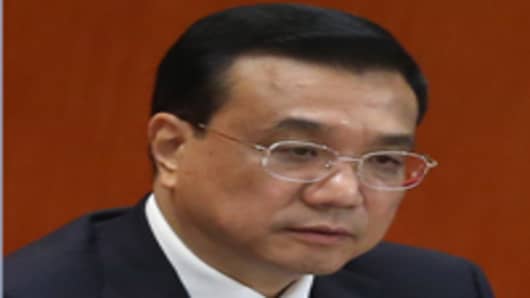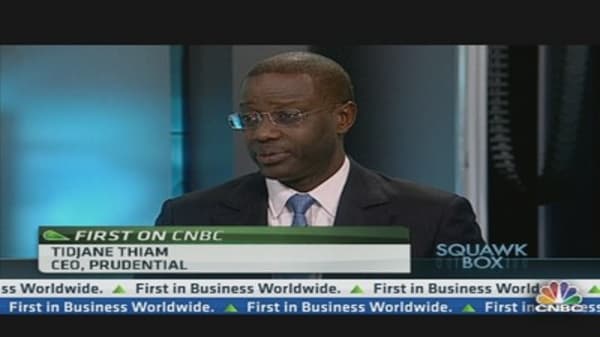As Washington scrambles to avoid the "fiscal cliff," some leaders of China are committed to never allowing their country to fall into the same financial trap.
A 20-year economic development plan co-authored by a Chinese state think tank outlines a plan for the country that focuses on increasing the role of the markets and competition in order to continue achieving economic growth.
The plan, which was put together last year, is significant because China's new premier, Li Keqiang, was intimately involved in its development. (Read more: Key Leaders Elected to Central Committee)
The document makes some extraordinary statements for a country that still describes itself as socialist.
For example, early on in the report it states: "China does not intend to fall victim to the 'high-income trap' whereby publicly financed social entitlements become fiscally unsustainable."
In the US and Western Europe, social entitlement spending is on the path to becoming unsustainable, or already there, leading to massive cuts in government welfare benefits in countries such as Greece and Portugal. (Read more: "Anti-Austerity Strikes Sweep Europe".)
The report also makes repeated reference to building the foundations of a market economy. This, even as the Congress of the Communist Party put out a statement today as part of its once-in-a-decade transition, describing China as a follower of Marxist-Leninism.
"China 2030: Building a Modern, Harmonious, and Creative High-Income Society," is extremely lengthy, roughly 1,000 pages, and was organized by the Chinese Ministry of Finance.
The co-authors are the World Bank and the Development Research Center of the State Council. The latter is a state-owned think tank serving the research needs of senior members of the Communist Party.
Despite the title, what is suggested within the report will more likely lead to much dis-harmony, at least at first.
The report takes repeated aim at the numerous "SOEs" in China — State-Owned Enterprises, that many economists believe still control too much of the economy and do not allow for enough competition.
It calls for reforming and restructuring them because they consume more capital than equivalent private enterprises and are often far less profitable, if at all. It urges deep reforms in the banking system — where lending is still highly politicized. Doing those two items alone means fending off deeply vested interests who would like things to remain the way they are in China.
The report calls for a deep change in the role of the government in the lives of its people, saying the state needs to provide fewer "tangible" goods and services directly and instead provide more intangible public goods such as systems, rules, and policy frameworks.
Additionally, it states that countries which sustain growth and development for extended periods have certain characteristics such as "open trade and investment policies" and have "allowed markets to allocate resources."
Economist Stephen Roach, formerly chairman of Morgan Stanley Asia, uses the report in the classes he teaches at Yale University. He calls it "probably the best report that's ever been written about China."
But Roach raises this key question: Will the new leadership of China, just installed today, actually follow it? Roach is hopeful because of Premier Li's involvement.
"I don't think this report would have been as innovative and pushing the envelope as far as it did" if not for Li's involvement, says Roach.





